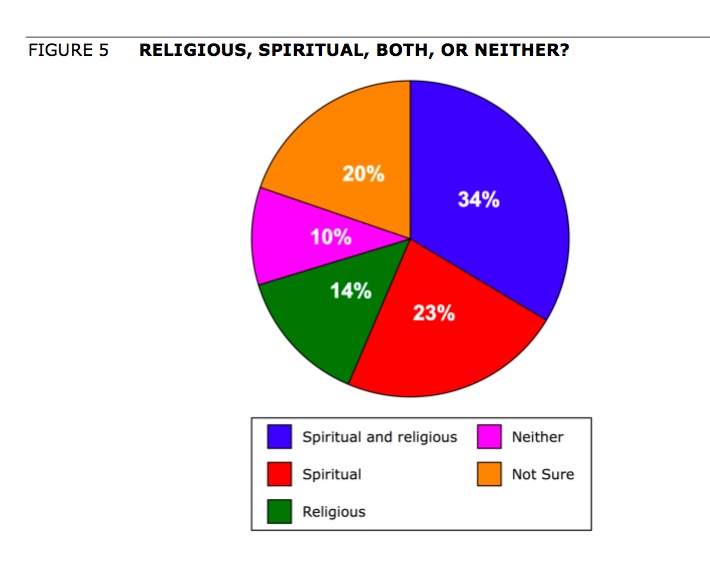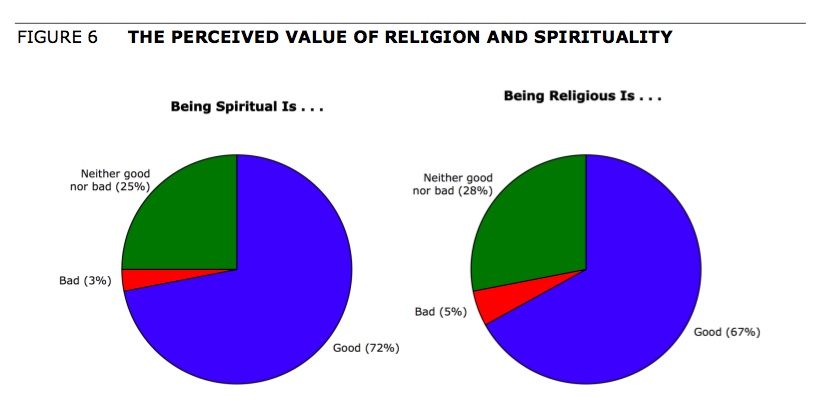How Youth Grow Spiritually Across the Globe
Sam Rainer

The Search Institute recently released a first-of-its-kind global study on the spiritual development of young people from different countries and across various traditions. From 2006-2008, they studied more than 7,000 youth between the ages of 12 and 25. These youth lived in 17 countries on 6 continents, so this study is a true global snapshot.
They’ve published loads of data, and the entire report can be viewed here. The report is large in scope and diversity, but I’ve listed below a few of the key findings:
The vast majority of youth in this study believe there is a spiritual dimension to life. In most countries where surveys were conducted, an average of only 7% of youth said they didn’t believe life has a spiritual dimension or they didn’t know. Among youth who believe there is a spiritual dimension to life, they are most likely to understand it as “believing there is a purpose to life,” “believing in God,” or “being true to one’s inner self.”
About one-third of youth surveyed see themselves as “very” or “pretty” spiritual. One in three youth in the survey see themselves as “very” or “pretty” spiritual. However, this level varies considerably across countries, from a high of 52% in the United States and 50% in Thailand to a low of 23% in Australia.
Young people view both religion and spirituality positively. A majority of youth in the survey thinks that both being religious and being spiritual as “usually good,” with about one-fourth of respondents saying that being either is neither good nor bad. In focus groups, however, some young people expressed more positive perspectives about spirituality than about religion and religious institutions.
Youth say family and friends help them spiritually, but one in five say no one does. When asked to identify who helps them most in their spiritual life, young people surveyed were most likely to point toward family, with 44% of youth survey selecting this option. Just 14% of youth indicated that their religious institution (church, synagogue, mosque, temple, or other religious or spiritual place) helps them the most.
Youth most often nurture spiritual development alone or by helping others. When asked how often they engage in various activities that help them grow spiritually, young people were most likely to say they read books (47%), pray or meditate alone (44%), help others (44%), or attend religious worship or prayer services (40%). Three of the six most common activities involved acts of compassion, service, or generosity.
The report reveals bright spots – youth across the globe believe in and are open to spirituality. And friends and family are key in their spiritual development. Additionally, youth have a desire to grow by serving others. This research also reveals that many of the same problems in North America exist elsewhere – the church (or the religious institution) is not viewed as an outlet for spiritual development. And many youth end up becoming spiritual islands, drifting in their attempts to develop something spiritually on their own.
This research is broad and pluralistic in nature, but it does contain fascinating breakdowns between countries. What are your thoughts? Anything surprise you in the findings?








I wanted to say how great it is that this type of research has been done. I have been involved with youth ministry for 25 years and for the last few years I have been the Youth consultant for a large international mission agency.
A lot of what you are describing is happening with youth in the majority world. There has been such a large shift in global youth culture that the ways in which they receive Christian truth, grow in their faith and interact with other Christians is changing fast. The models of what we ‘think work’ aren’t cutting it with today’s generations.
I am particularly concerned about the statistics you provided that ‘the church is not considered an outlet for spiritual development’. For many young people I connect with around the world church is more like a club rather than a place where they are discipled and work out their Christian faith.
Please i need a newsletter on the youth and the church.
please i am from East Africa Kenya as ayouth wanting you to visit our group,
I need advice on how to run a youth organisation